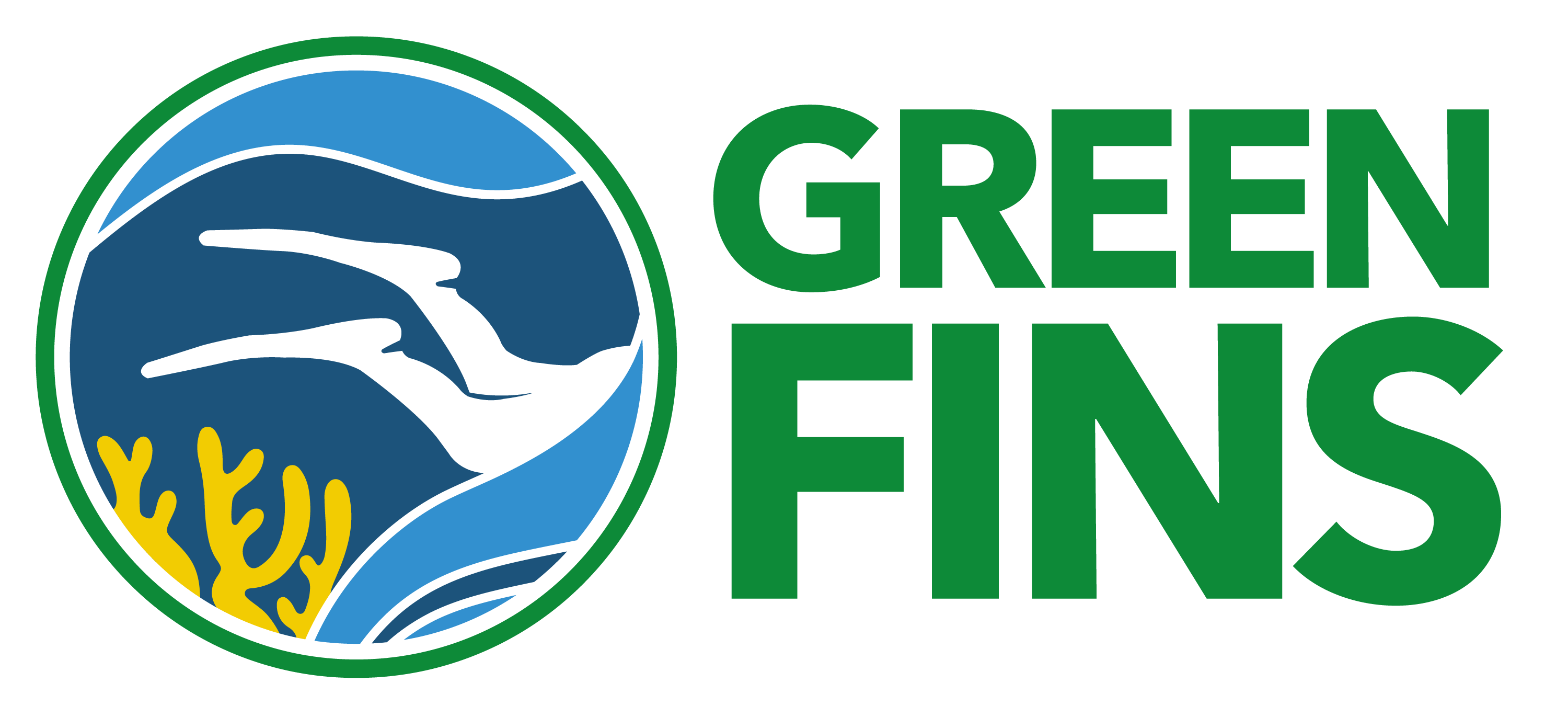One of the many ways we can enjoy and experience the magic of the ocean is through snorkelling — it’s easily accessible, efficient and much cheaper than other marine tourism activities available. According to the Business Diving Institute, there are 20 million snorkellers worldwide — that’s the size of the Netherlands’ entire population! This incredible surge in marine tourism brings unforgettable experiences, but with so many people in the water and so many different marine activities taking place, it’s important to recognise that tourism, if not managed responsibly, can have a significant environmental impact on our ocean.
Learning Together Through Making Waves
Reef-World’s “Making Waves” webinar series connects, shares knowledge and facilitates learning within the global community of Green Fins Members and supporters. Over the past three years, the series has evolved its focus to address the ocean’s most pressing challenges: from empowering online communities in the diving industry to community-led coral health monitoring in response to the 4th global coral bleaching event in 2024.
Now in 2025, as part of the Sea the Change campaign — a movement encouraging positive action for ocean conservation — Reef-World is focusing on snorkelling, one of the most accessible ways people experience the ocean. The series explores how travellers and marine tourism businesses alike can drive real, lasting impact through the way they explore and operate.
The Power of Conscious Travel Choices
The webinar featured industry guests who shared insights on how travellers and snorkelling businesses can play a vital role in conservation, community engagement and sustainable business practices.
Marie-Céline Piednoir of Positive Ripple Consulting reminded participants that while it’s inevitable to make an impact when travelling, people have the power to choose whether that impact is positive or negative. Every choice we make — from the operators we support to how we interact with the environment — has the power to leave a lasting, positive impact.
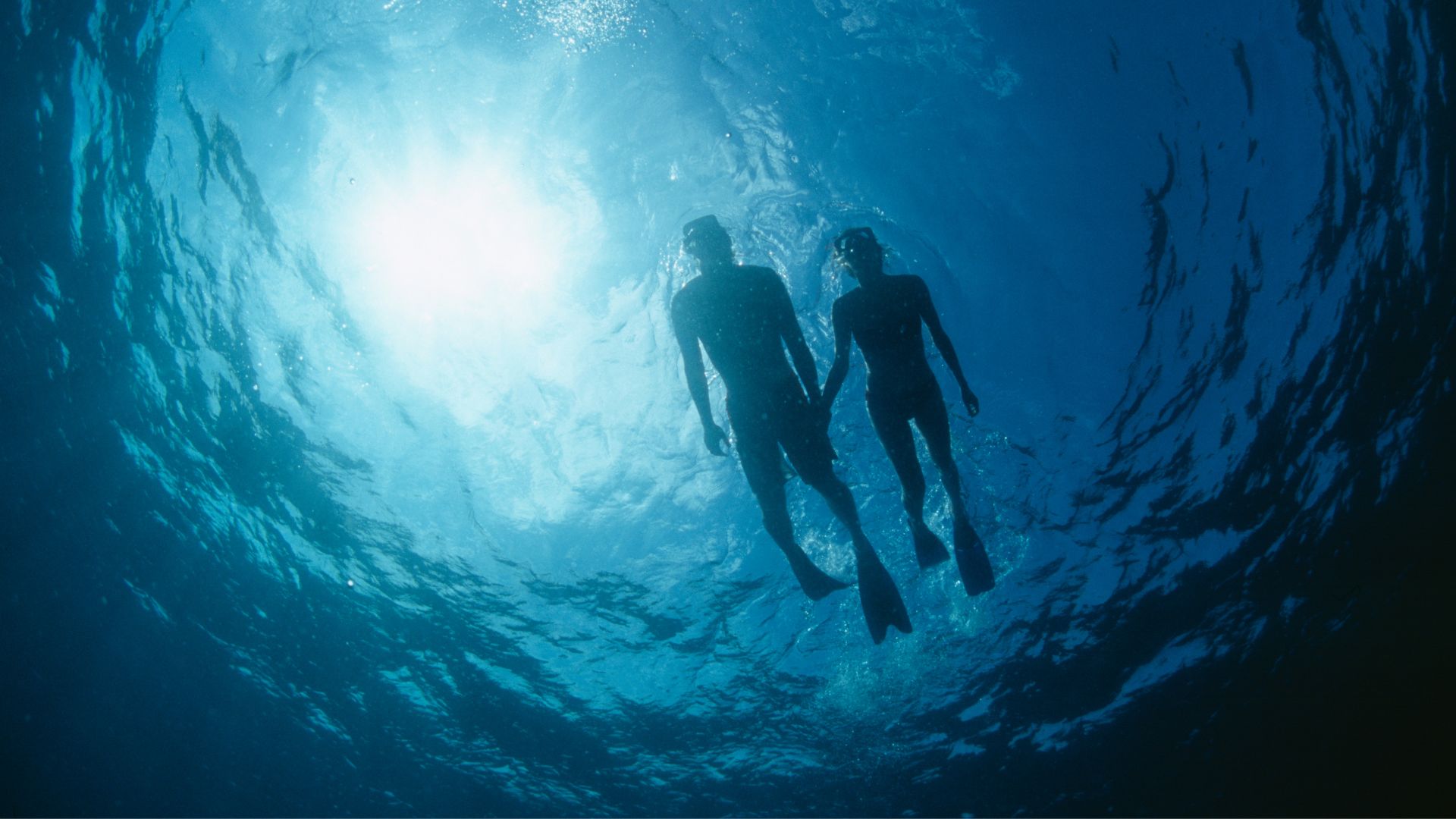
How to Make a Positive Impact While Snorkelling
The truth is, small actions go a long way. Here’s how you can snorkel responsibly:
Before you go:
Start by doing some research. Is there a snorkelling operator that follows sustainable practices at the destination you’re going to? Look for Green Fins Members — operators committed to protecting marine environments through sustainable practices like proper waste management, reef-safe operations and environmental education.
Pack responsibly:
Pack a rash guard to protect yourself from the sun or use only non-toxic sunscreen. Bring a reusable water bottle and reusable shopping bags for your shopping. Don’t forget to check that your snorkelling gear is in good condition.
In the water:
Always snorkel within your limits. If you’re feeling unwell, don’t go. If you’re unsure about the depth or conditions, wear a life jacket — it keeps you safe and prevents unintentional harm to marine life through panic or loss of control. Most importantly, no matter how beautiful or fascinating something is, remember: it’s not yours to touch and take. Take only memories, leave only bubbles.
For comprehensive guidance, travellers can check out the Green Fins Environmental Best Practice for Snorkellers and watch for upcoming Green Fins e-courses designed specifically for snorkellers and guides.
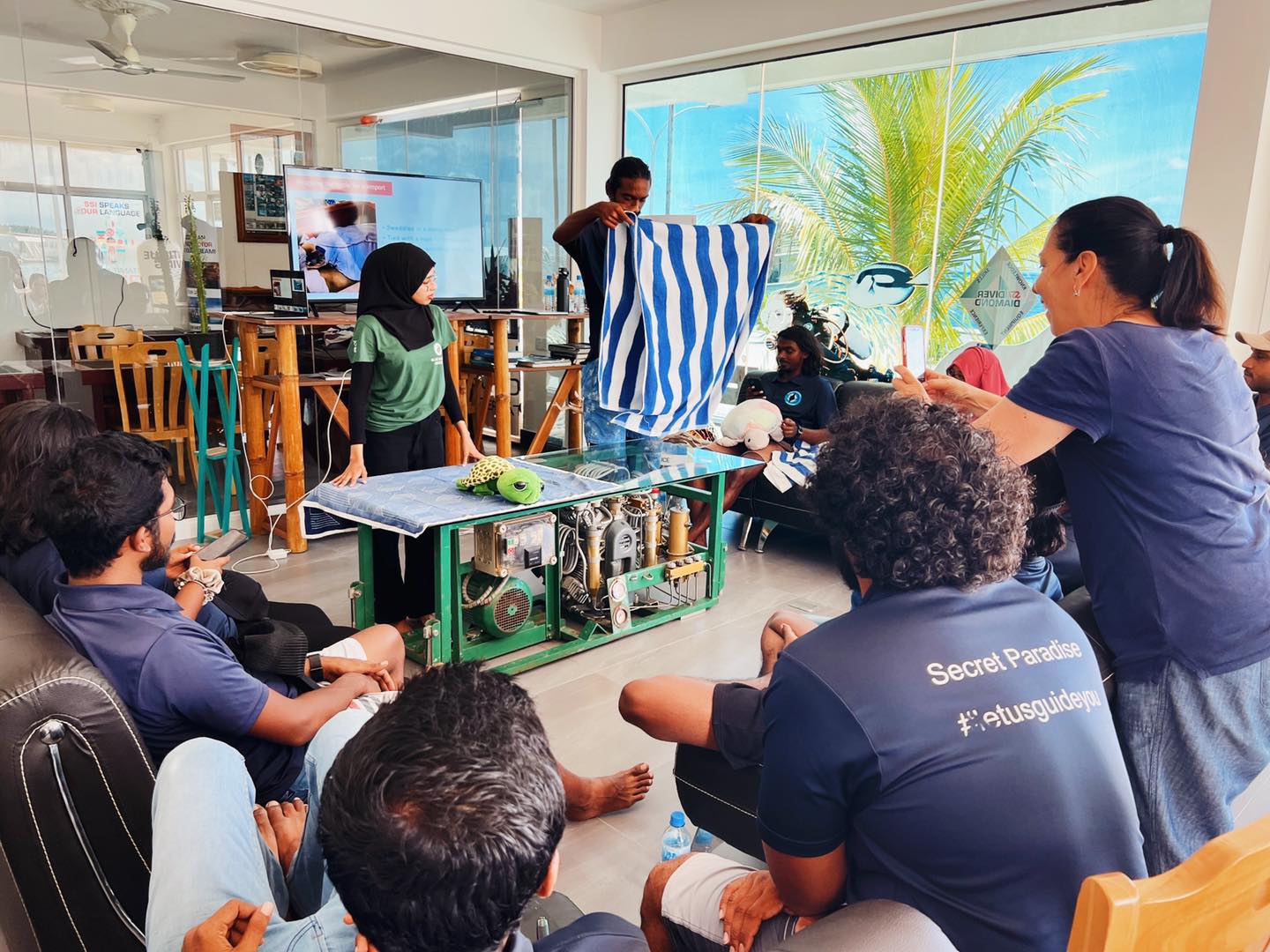
Supporting Communities Through Sustainable Tourism
The snorkelling industry supports countless communities and local economies around the world. During the webinar, Ruth Franklin of Secret Paradise Maldives shared both the opportunities and challenges of running a sustainable snorkelling business. She highlighted how supporting the local economies through hiring local guides, sourcing materials locally, and involving communities in conservation efforts is not just possible but essential for long-term success.
Ben Stokes from Snorkel Ventures demonstrated this beautifully with their “Snorkel for Good” initiative, showing how guests can take part in hands-on conservation activities during their trips. It’s a great example of how snorkel tourism can go beyond passive experiences to create real change, both above and below the surface.
Ruth’s story is a powerful reminder that sustainability and tourism can go hand in hand when businesses commit to responsible practices and travellers choose operators that align with their values, as they can vote with their wallets.
The Ripple Effect of Responsible Snorkelling
Snorkelling can be a powerful tool for conservation and education. It’s accessible, low-cost, and opens up a different world to so many of us. The more we see, the more we understand. The more we experience, the more we learn. When we witness the state of our seas — whether it’s vibrant reefs or signs of stress, we’re faced with a choice: do we want to be part of the change for better or for worse?
Every time we travel, we come home with stories. Stories about where we went, what we saw, and how we felt. The question is — what kind of story will you tell? One that made a difference, even in small ways? One that left the ocean a little better than you found it?
The choice is yours — and that’s where real impact begins.
Take Action Today
Ready to sea the change? Here’s how to get involved:
👉 Sign up to be notified when Green Fins e-courses for snorkellers and guides launch
👉 Watch the full Making Waves webinar on sustainable snorkelling
👉 Download the Green Fins Environmental Best Practice for Snorkellers and share with your community for your next ocean adventure
Together, the 20 million snorkellers worldwide can become 20 million ocean advocates, creating waves of positive change that protect marine environments for generations to come.
